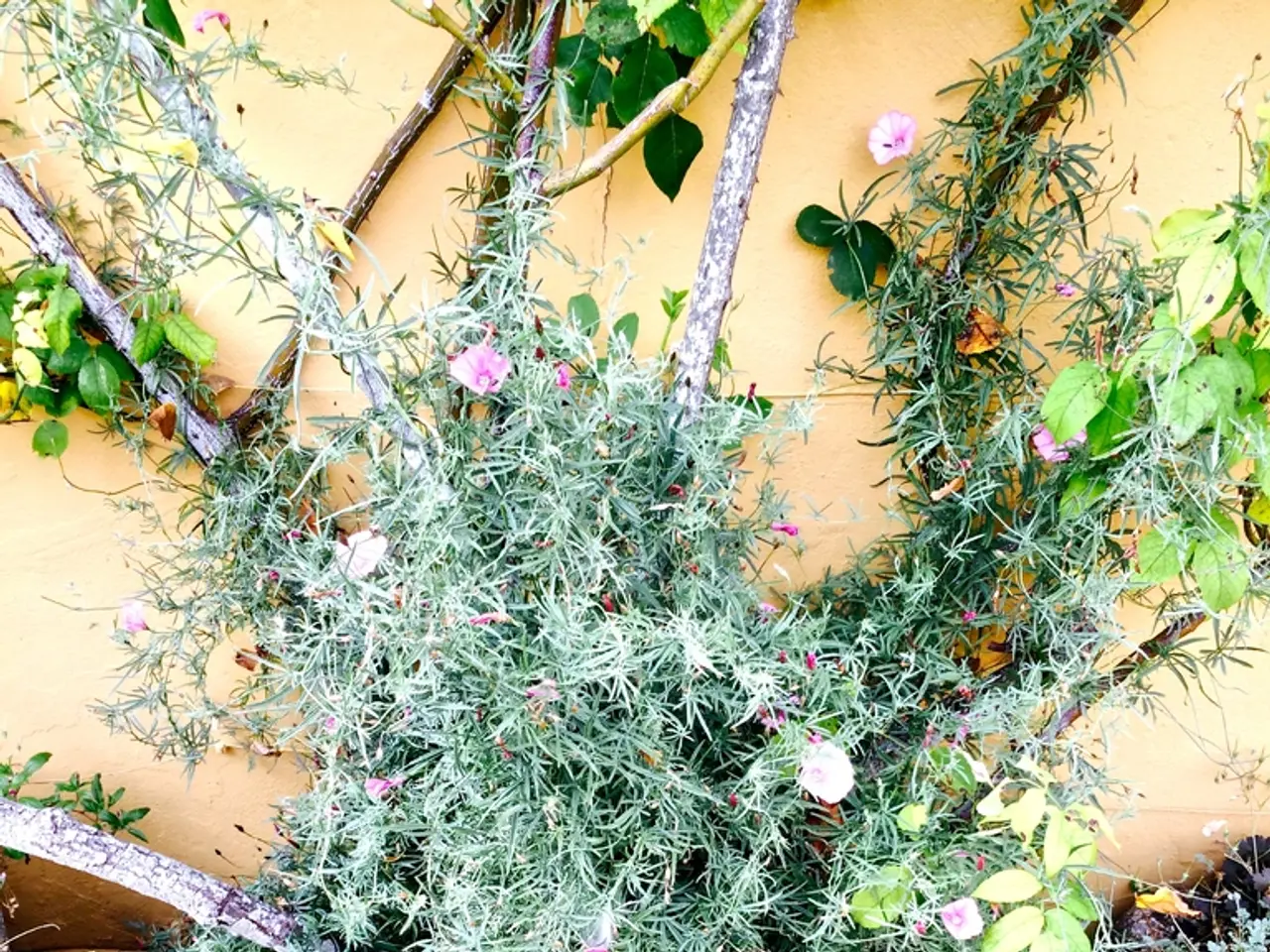Divine Flora in Hindu Mythology: The Top 20 Holy Plants to Know
Hinduism's Sacred Plants: A Blend of Spirituality and Healing
A unique aspect of Hindu culture is the deep intertwining of spirituality and traditional medicine, as evident in the numerous plants that are closely associated with the gods and goddesses. Each plant carries spiritual symbolism and notable medicinal properties.
Tulsi (Holy Basil) - The "Queen of Herbs"
Tulsi (Ocimum tenuiflorum) is one of the most important sacred plants, revered as an earthly form of Goddess Lakshmi and used extensively in Hindu rituals. Known as the "Queen of Herbs," Tulsi is believed to purify the mind, body, and soul, and is used daily in worship. Tulsi has well-documented medicinal uses in Ayurveda, particularly for immunity and respiratory health [1][2][4].
Peepal Tree - Symbol of Protection and Enlightenment
The Peepal Tree (Ficus religiosa) is sacred to Lord Vishnu and Buddha, symbolizing protection and enlightenment. It is linked with long life and meditation. In Ayurveda, the Peepal tree has various applications, particularly for respiratory issues, inflammation, and digestive problems [1].
Neem Tree - The "Tree of Purity"
The Neem tree (Azadirachta indica) is renowned for its purification qualities and potent medicinal effects. Known as the "Tree of Purity," Neem wards off evil and is used at entrances for protection. It has strong antibacterial, antifungal, and antiviral properties [1][2].
Ashoka Tree - A Symbol of Love and Happiness
The Ashoka tree (Saraca asoca) is associated with Goddess Lakshmi and Buddha. It symbolizes love and happiness, with Buddha's birth associated with this tree. The bark of the Ashoka tree is used in traditional medicine [1][2].
Bael Tree - A Spiritual Shelter
The Bael Tree is associated with Lord Shiva and is used in Shiva worship rituals. Its trifoliate leaves represent Shiva's trinity. In Ayurveda, the fruit and leaves of the Bael tree are used for digestive and diabetes management [2].
Banyan Tree - A Symbol of Eternity
The Banyan Tree (Ficus benghalensis) is considered sacred, often associated with Lord Brahma, Vishnu, and Shiva. It symbolizes eternity and shelter, and is a place for meditation. Ayurvedic uses include treating ulcers, diabetes, and skin conditions [1].
Lotus - A Symbol of Purity and Spiritual Awakening
The Lotus (Nelumbo nucifera) is a symbol of purity, spiritual awakening, and divine beauty. It is the divine seat of deities. Seeds and roots are traditionally used for digestive issues and inflammation [2][3].
Hibiscus - Represents Divine Energy and Strength
The Hibiscus is associated with Goddess Kali and Lord Ganesha, representing divine energy, strength, and courage. It is used for seeking resilience and removing obstacles [3].
Jasmine - A Symbol of Love and Devotion
Jasmine is associated with Lord Krishna, Vishnu, and Hanuman, symbolizing love and spiritual devotion. It invokes calmness and protection during rituals [3].
Mango Tree - A Symbol of Fertility and Prosperity
The Mango Tree (Mangifera indica) is a symbol of fertility and prosperity, used in traditional medicine and rituals [1].
These sacred plants are not only offerings to the gods and goddesses but are also believed to confer divine blessings and health benefits.
[1] - Ayurveda Online (n.d.) Sacred Plants in Hinduism. Retrieved from www.ayurvedaonline.com/sacred-plants-in-hinduism
[2] - Hinduism Today (n.d.) Sacred Plants of Hinduism. Retrieved from www.hinduismtoday.com/modules/smartsection/item.php?itemid=6979
[3] - The Spruce (n.d.) Hindu Sacred Plants and Their Meanings. Retrieved from www.thespruce.com/hindu-sacred-plants-and-their-meanings-3309705
[4] - NCBI (n.d.) Antimicrobial Activity of Holy Basil (Ocimum tenuiflorum) Essential Oil and Its Major Constituents. Retrieved from www.ncbi.nlm.nih.gov/pmc/articles/PMC3597944/
- In addition to being used in worship and Hindu rituals, Tulsi, also known as Holy Basil, has well-documented medicinal uses in home-and-garden practices, such as Ayurveda, for boosting immunity and improving respiratory health.
- Seeds and roots of the Lotus, considered a symbol of spiritual awakening, are not only traditionally used in Hindu rituals but also have medicinal properties, often being used to treat digestive issues and inflammation.
- For those interested in a sustainable and spiritually enriching lifestyle, incorporating sacred plants like Peepal, Neem, Ashoka, Bael, Banyan, and Jasmine into one's home-and-garden or gardening projects can offer not only aesthetic benefits but also a connection to Ancient Hindu spirituality and healing practices.





